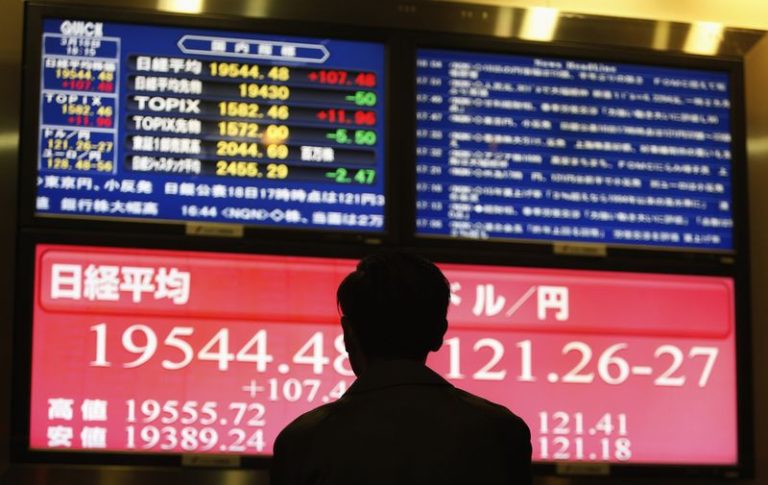Investing.com– Most Asian equities were lower on Monday as South Korean shares plunged to their lowest levels in more than a year on deepening political unrest in the country, while investors assessed key economic data releases from China and Japan.
Risk appetite among investors was timid as they were also worried about geopolitical tensions in the Middle East after after rebel forces ousted Syrian President Bashar al-Assad and took control of Damascus. Media reports said al-Assad had landed in Moscow, while Israeli forces had entered Syria.
S.Korean shares slide 2%, lead Asia shares lower
South Korea’s KOSPI fell more than 2% on Monday to its lowest level since early-November 2023. The index had lost more than 1% last week.
South Korea’s political crisis deepened as prosecutors launched a criminal investigation into President Yoon Suk Yeol on Sunday, over his attempt to impose martial law in the country.
Yoon survived an impeachment vote in the opposition-controlled parliament on Saturday, but the head of his own party said that Yoon would be sidelined before eventually resigning.
The political instability in South Korea has kept investors on the edge, as any escalations could have ripple effects all over Asia.
Philippine’s PSEi Composite index fell 0.7%, while Indonesia’s Jakarta Stock Exchange Composite Index was largely unchanged.
Australia’s S&P/ASX 200 inched 0.2% lower while India’s Nifty 50 Futures indicated a muted open on Monday.
Japan GDP, China CPI in focus spur muted reaction from stocks
Japan’s Nikkei 225 was up 0.3%, while the TOPIX climbed 0.4% after Monday’s revised gross domestic product (GDP) data showed that Japanese economy grew slightly more than expected in the third quarter. However, the reading was well below prior quarter’s rise.
The soft reading has raised doubts on the Bank of Japan’s ability to raise interest rates further. Markets remain divided on whether the BOJ will hike rates next week.
In China, the Shanghai Composite index was up 0.4%, while the Shanghai Shenzhen CSI 300 index edged 0.2% higher.
Data on Monday showed Chinese consumer inflation contracted more than anticipated in November, as recent stimulus efforts failed to counteract a persistent deflationary trend.
Producer price inflation in November also remained subdued, despite a mild improvement in business activity. The reading reflected more than two years of ongoing declines in PPI inflation, as China’s factories faced challenges due to weak domestic demand, and sluggish property sector.
Focus this week will be on China’s annual Central Economic Work Conference (CEWC) for cues on more stimulus measures from the country’s central bank.
Hong Kong’s Hang Seng index inched 0.1% higher.
Globally, investors are awaiting U.S. consumer price index inflation data, due on Wednesday, to further gauge the Federal Reserve’s interest rate outlook.
Data on Friday showed stronger-than-expected growth in nonfarm payrolls in November, but was not enough to move bets against a widely expected cut by Fed next week.
US stock futures were muted in Asian trade.

